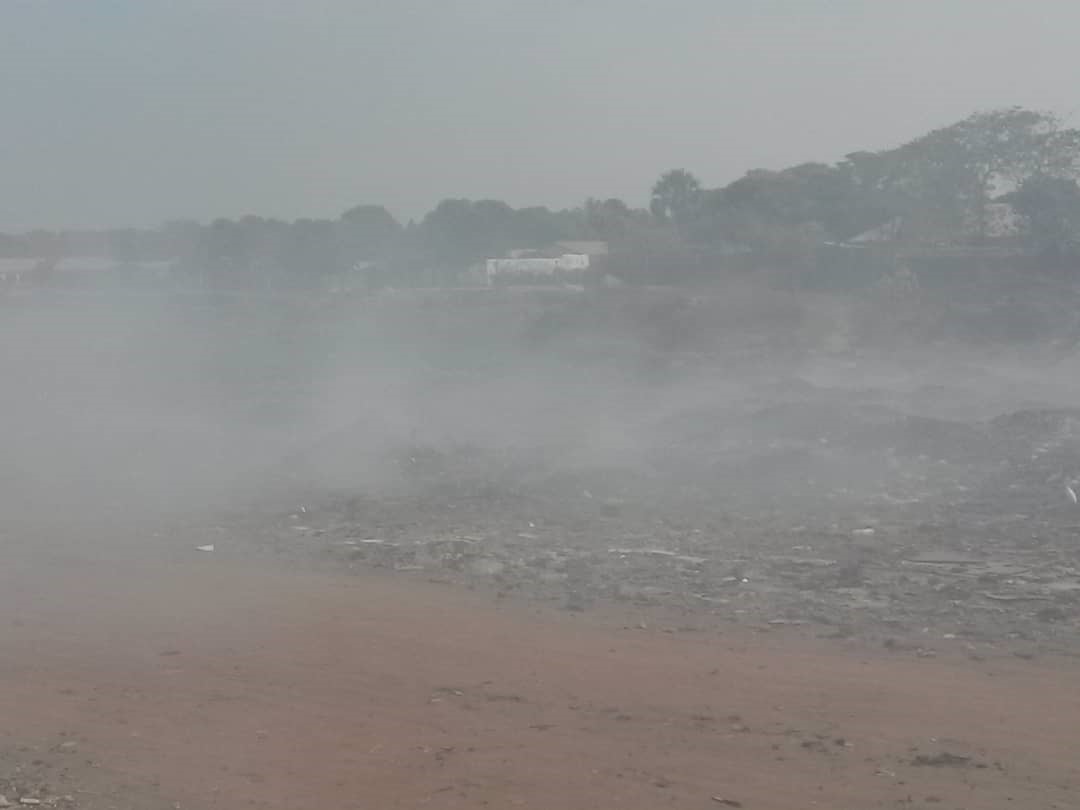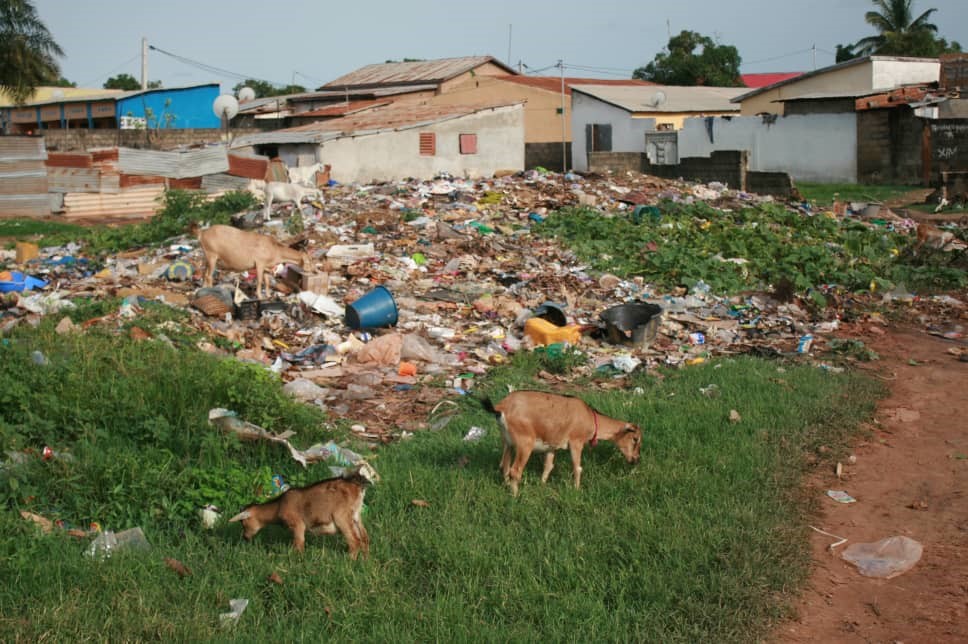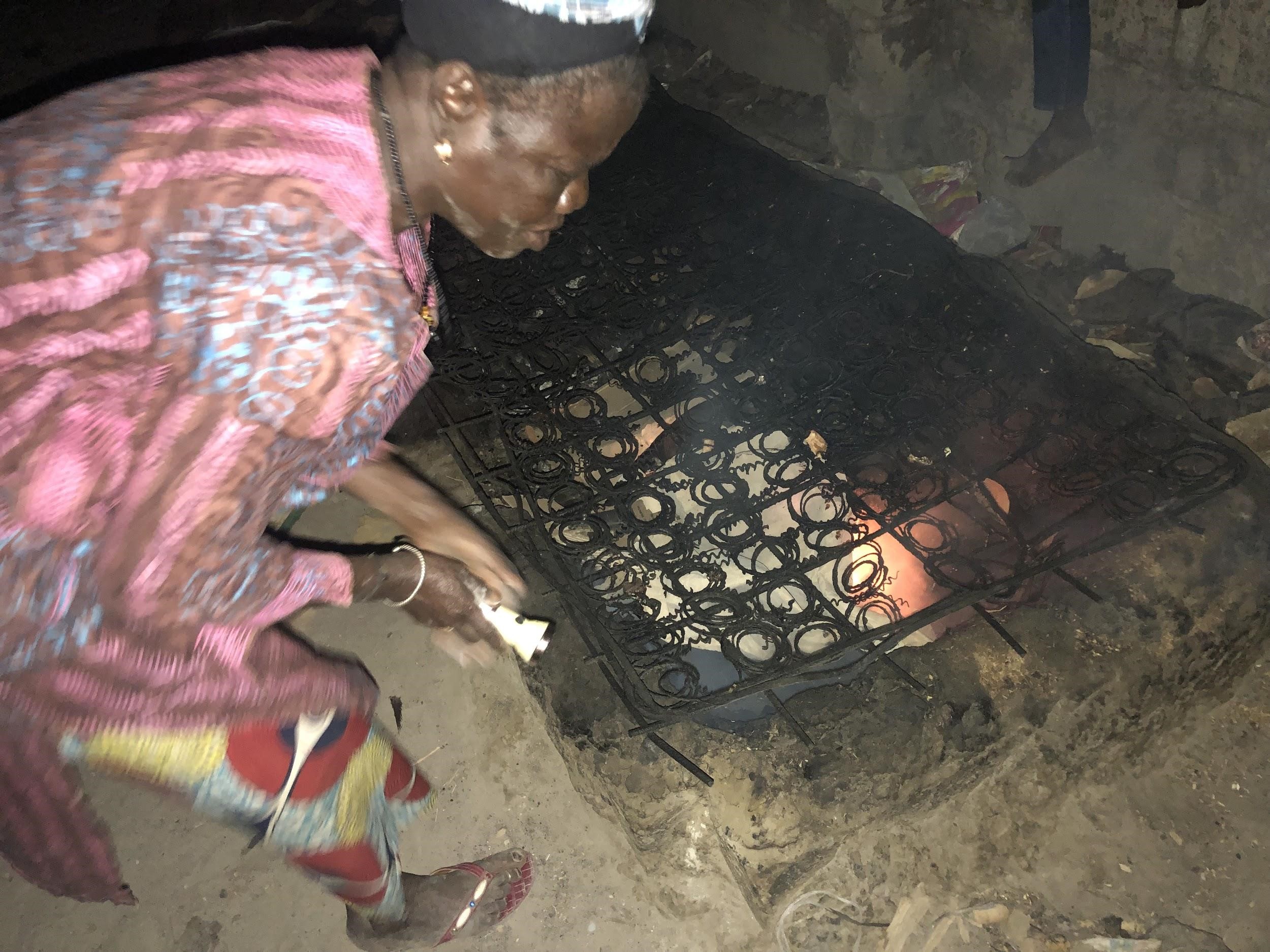Why Migrant Women Might Just Save the Southern African Economy
Trending
Wednesday June 18, 2025
Trending

Banjul
The sky looked misty and cloudy on a sunny day just like the rain was going to fall, an obnoxious smell filled the air around the famous Gambia Mall in the capital Banjul. An adjacent street led straight to the dumpsite. Suddenly, there was a thick cloud of smoke which forced many women vendors to cover their noses.
There is frequent burning at the dumping site which is causing more harm to the residents and it continues generating more debate as people are calling for the relocation of this large dump to a far away and isolated area.
Causes of Air Pollution in the Gambia
Dumpsites are not the only cause of air pollution in the country, but there are emissions from plastics; manufacturing industries, felling of firewood for charcoal by women; fish smokers; and emissions from old vehicles. All these lead to carbon gas emissions.

Emissions from vehicles are indiscriminately increasing in the country because of the influx of used vehicles without grade restriction. These vehicles are the most affordable across the country and the number is growing daily. This means people are breathing in harmful gases due to poor air quality as a result of this factor.
Ending Plastic Pollution in the Gambia
However, plastic pollution is another headache for The Gambia since they are scattered across most streets, bushes, farmlands and drainages/gutters. The indiscriminate use and disposal of plastic bags make them a threat to the environment because they are non-biodegradable and do not decay for hundreds of years. This makes it a threat to the environment.
Just as the President of UNEA-5 and Norway’s Minister of Climate and the Environment, Espen Barth Eide pointed out, “Plastic pollution has grown into an epidemic of its own. Paradoxically, plastics are among the most long-lasting products we humans have made – and frequently, we still just throw them away.”
More so when burned, they emit toxic gases that harm the atmosphere and increase the level of volatile organic compounds in the air according to UNEP.
To tackle plastic pollution in the country, the Government of The Gambia on July 1st, 2015 issued a statement banning the importation and use of plastic bags. It stopped for a while, but later resurfaced in the market around March 2017 with full force.
This means that it was banned but not eradicated from the market.

Momodou Jama Suwareh works at National Environmental Agency, he echoed that air is a natural resource used daily due to its free access. Human action has been a major driver in changing its quality, thus leading to major health implications, discomfort, and stress.
“In Africa, research has shown that air quality in rural areas is generally within acceptable limits, but in towns, it has an area where outdoor and indoor air quality is deteriorating rapidly due to increasing traffic volumes and use of firewood and other biomass as sources of energy in densely populated urban neighbourhoods,” he cited.
Women and pollution
Air pollution is seriously having a bad impact on Gambian women as most of them are always exposed to air pollution in different ways. This includes emissions from open burning of waste, including, plastic; use of charcoal; inhaling of vehicle emissions and smoking fish. Given their role as providers and caregivers, women are exposed to high levels of pollution. They spend several hours by the roadside selling their wares while vehicles release harmful gases. They also smoke fish in the market for several hours to make ends meet. When they return home, they are again exposed to indoor pollution as a result of using firewood or charcoal.
Ms Mariama Kassama, an environmental activist blamed the government of the Gambia for inconsistency regarding environmental laws saying the country should have an environmental policy that they can use as a guideline to regulate the issues of air pollution in the country.
“Many companies are operating in the country polluting the environment. Some of those companies do not even have an operational license and do not even pay taxes. Also, they are located in the towns, and whenever the pollution starts it affects the entire community,” she lamented.
In addition, Ms Kassama opined that the Gambia Ports Authority should also take a stance and monitor the cars that are imported into the country, as “some cars need a mechanical checkup before they start operating. Sometimes you will be in the traffic and see a car puffing out fumes heavily polluting the entire area. This is not good for human health, especially for women, they are vulnerable people.”
Listening to Fatou Jawara, a local fish vendor who has experienced the harmful effects of air pollution, one cannot help but realize that women are disproportionately affected by pollution which is one of the causes of climate change.
She suffered from heart disease which doctors linked to her daily exposure to polluted air while smoking fish for survival.

“I am a smoked fish dealer and have been in the business for over 8 years. I used this business to feed my family. Though, my health does not stop because I have no one to feed my family. I’m not healthy enough, though it is due to frequent exposure to air pollution during the work I do,” she narrates to AWiM News.
Sometimes, she will spend almost all her daily earnings on medication to treat respiratory ailments.
“We all know that the fish smoking business is hard, but we just cope with the situation to feed the family,” she disclosed, adding that she drinks milk each time she completes her job hoping that it could neutralise the inhaled carbon dioxide.
To effectively tackle air pollution in the country, environmental lobbyists like Ms Kassama have been calling on government and development partners to intervene and support local initiatives on sustainable waste management which could have an impact. This has also been captured in the element of the Africa Green Stimulation Programme (AGSP) which focuses on sustainable waste management as a part of a global action to protect the planet’s natural resources and ensure healthy and sustainable living through the protection of the environment.
There have also been calls for controlling the importation of used vehicles to curb air pollution.
She calls for adequate sensitization for women who uses charcoal, firewood and fish smokers to use clean energy like energy-saving stoves.
She emphasizes the adaptation of modern technologies to reduce emissions from the industrial area; monitoring of the dumping site to avoid indiscriminately setting fires which frequently occur at the site without control.
“Let there be a proper management team of the waste generated in the country because it is another avenue to reduce the rate of unemployment. This means that the government, individuals and investors should invest in the recycling of the waste in the country,” she stated.
Dr Dam Khan at the Medical Research Council Unit, The Gambia disclosed that air pollution can cause diseases ranging from respiratory and cardiovascular diseases to eye irritation and skin cancer. In women, research has also shown that exposure to air pollutants affects women’s fertility.
“In rural African settings, women are disproportionately affected by indoor air pollution. Indoor air pollution is air pollution generated within confined environments (including in households). The use of biomass (charcoal, firewood) for cooking is common in rural settings and women are the ones doing the cooking. All these expose women to harmful substances such as particulate matter and carbon monoxide generated from burning of biomass,” he explained.
As the world gears for COP27 in Egypt, The Gambian Government May held a joint sectoral forum to cover key presentations from waste, transport, agriculture and tourism, exploring which would need to go to net-zero greenhouse gas emissions.
Speaking at the forum in May with various ministries to develop a Long-Term Strategy for The Gambia, Momodou Mbye Jabang, permanent secretary of the Ministry of Environment, Climate Change and Natural Resources (MECCNAR) said, “The Ministry of Environment is proud that The Gambia has achieved a standard Nationally Determined Contribution (NDC) document that is identified globally, noting that they want to maintain that footing.”
“It is globally determined that we are on track to achieve the Paris Agreement goal and we must make sure we put all our hands on deck so that any document that is coming after that mirrors the excellence that is already captured in that document so that we maintain that position and enhance our ability to mobilize resources to fulfil what we map out in the long-term strategy,” PS Jabang said.
Just like Mr Jabang stated that The Gambia is working on a path to tackling pollution, many women hope that these words would indeed turn into action and cut down pollution which is affecting their health.
This article is part of African Women in Media (AWiM)/UNEP Africa Environmental Journalism Programme
Do you want to publish this article? Kindly contact janet@africanwomeninmedia.com
We’re not gonna spam. We’ll try at least.

Copyright 2020. African Women In Media
Copyright 2020. African Women In Media
Recent Comments